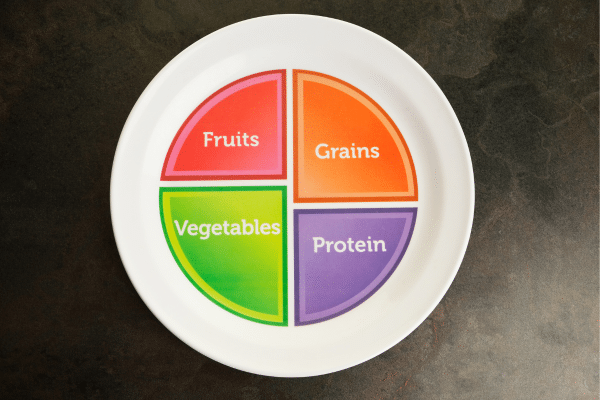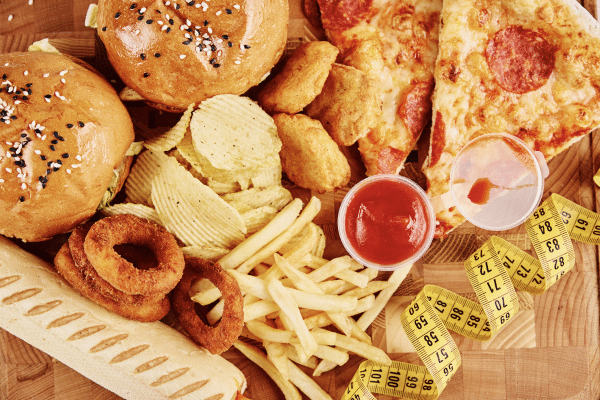Embarking on a weight loss journey requires not just determination but also an informed approach. Common pitfalls often go unnoticed, turning the path to a healthier self into a challenging endeavor. Understanding what to avoid is just as crucial as knowing what to follow. This guide aims to shed light on the typical mistakes that can hinder progress in weight loss. By steering clear of these missteps, individuals can navigate their journey more effectively and achieve sustainable results.
Contents
Ignoring Portion Sizes

Underestimating the impact of portion sizes can derail weight loss efforts significantly. Often, individuals consume more than necessary, not because of hunger, but due to oversized portions served at restaurants or at home. This oversight leads to a higher calorie intake, which accumulates and hinders progress. Being mindful of portion sizes doesn’t require drastic measures; simple adjustments such as using smaller plates or checking nutrition labels for serving sizes can make a substantial difference. Additionally, listening to hunger cues and eating slowly allows the body to register fullness, preventing overconsumption.
In today’s digital age, numerous tools and apps are available to assist in monitoring portion sizes. From food scales for precise measurement to visual comparisons (such as equating a serving of meat to the size of a deck of cards), these resources promote awareness and control over food intake. Embracing these aids not only fosters a better understanding of portion control but also empowers individuals to make informed decisions, aligning their eating habits with their weight loss objectives.
Overlooking Sleep and Stress

Neglecting the crucial role of sleep in weight management can be a critical mistake. Sleep deprivation disrupts hormonal balances, particularly those regulating hunger and satiety, leading to increased appetite and cravings for high-calorie, unhealthy foods. Furthermore, insufficient rest impairs the body’s ability to metabolize these foods efficiently, resulting in fat accumulation. Establishing a consistent sleep routine, ensuring a comfortable sleep environment, and avoiding stimulants close to bedtime can markedly improve sleep quality and support weight loss endeavors.
Similarly, unchecked stress levels contribute adversely to weight management. Chronic stress triggers the release of cortisol, a hormone that not only increases appetite but also encourages fat storage, particularly around the midsection. Combatting stress might seem daunting, but incorporating stress-reduction techniques such as mindfulness, yoga, or even regular physical activity can profoundly mitigate its impact. By acknowledging and addressing the intertwined nature of sleep, stress, and weight, one can adopt a more holistic approach to weight loss, paving the way for more sustainable and rewarding results.
Eating Processed Foods

The convenience of processed foods often masks their detrimental effects on weight loss efforts. These foods are typically high in calories, unhealthy fats, sugars, and sodium, while offering little nutritional value. Regular consumption can lead to a calorie surplus, promoting weight gain and hindering progress. Furthermore, processed foods are designed to be hyper-palatable, encouraging overeating and making portion control more challenging. Prioritizing whole, nutrient-dense foods not only supports weight management but also contributes to overall health and well-being.
Transitioning away from processed foods requires a deliberate shift towards meal planning and preparation. Embracing cooking at home allows control over ingredients and portions, fostering a healthier relationship with food. Swapping processed snacks for fruits, vegetables, or nuts provides the body with essential nutrients and keeps hunger at bay. Understanding label information helps in making informed choices when purchasing packaged foods, ensuring alignment with weight loss goals. This mindful approach to eating not only benefits weight management but also enhances the quality of the diet overall.
Setting Unrealistic Goals

Setting ambitious goals without a realistic plan can lead to frustration and demotivation in the weight loss journey. Expecting rapid results or setting extremely high standards often results in disappointment, as weight loss is typically a gradual process. Unrealistic expectations can lead to feelings of failure, prompting individuals to abandon their efforts prematurely. Instead, focusing on achievable, incremental objectives fosters a sense of accomplishment and maintains motivation.
Celebrating small successes is crucial in sustaining long-term commitment to weight loss. Whether it’s fitting into a smaller clothing size, improving endurance, or choosing healthy foods consistently, recognizing these victories boosts confidence and reinforces positive behavior. Setting SMART (Specific, Measurable, Achievable, Relevant, Time-bound) goals ensures a structured and achievable path towards weight loss, encouraging consistency and perseverance in the journey.
Not Exercising Regularly

Neglecting regular physical activity is a common oversight that can impede weight loss progress. Exercise plays a vital role in burning calories, building muscle, and boosting metabolism, all of which are essential for effective weight management. Moreover, physical activity contributes to overall health, improving cardiovascular fitness, bone density, and mental well-being. Incorporating a mix of cardiovascular, strength, and flexibility exercises ensures a comprehensive fitness routine that supports weight loss goals.
Finding an exercise routine that is enjoyable and sustainable is key to maintaining regular physical activity. Whether it’s walking, cycling, swimming, or group fitness classes, choosing activities that are enjoyable increases the likelihood of adherence. For individuals with busy schedules, breaking up exercise into shorter sessions throughout the day can make it more manageable. Setting realistic fitness goals and tracking progress can also provide motivation and a sense of achievement, further encouraging regular physical activity.
Neglecting Hydration

Often underestimated, proper hydration is a fundamental aspect of weight loss and overall health. Water plays a crucial role in various bodily functions, including metabolism and the digestion of nutrients. Confusing thirst for hunger is a common mistake, leading to unnecessary calorie intake. Staying adequately hydrated helps in distinguishing between hunger and thirst, potentially reducing the likelihood of overeating. Additionally, consuming water before meals can promote a feeling of fullness, aiding in portion control.
Ensuring sufficient water intake throughout the day is straightforward yet impactful. Carrying a reusable water bottle serves as a constant reminder to drink regularly. Infusing water with fruits or herbs can enhance flavor, making it more appealing for those who find plain water monotonous. Monitoring urine color, aiming for a light straw hue, provides a visual cue for hydration status. By prioritizing hydration, individuals can support their weight loss efforts and enhance overall health.
Focusing Only On The Scale

Relying solely on the scale to gauge weight loss progress can be misleading and disheartening. Weight fluctuations are normal and can be influenced by factors such as water retention, muscle gain, or the time of day. These fluctuations do not necessarily reflect fat loss or gain. Instead, a holistic view of progress, incorporating various indicators such as body measurements, fitness levels, and overall well-being, provides a more accurate and motivating assessment.
Exploring other methods of tracking progress, such as taking body measurements, noting improvements in physical performance, or recognizing changes in how clothes fit, can offer encouragement and a broader perspective on achievements. Celebrating these non-scale victories acknowledges the multifaceted nature of weight loss and health improvement, fostering a more positive and comprehensive approach to personal health and fitness.
The Bottom Line
Navigating the path to weight loss requires more than sheer willpower; it demands a conscious understanding of the various factors that influence success. Avoiding common pitfalls such as ignoring portion sizes, overlooking sleep and stress, consuming processed foods, setting unrealistic goals, neglecting regular exercise, disregarding hydration, and focusing solely on the scale is essential. Embracing a balanced and informed approach paves the way for sustainable weight loss and improved well-being. Remember, the journey to a healthier self is not just about the destination but also about adopting a lifestyle that supports lasting change.


